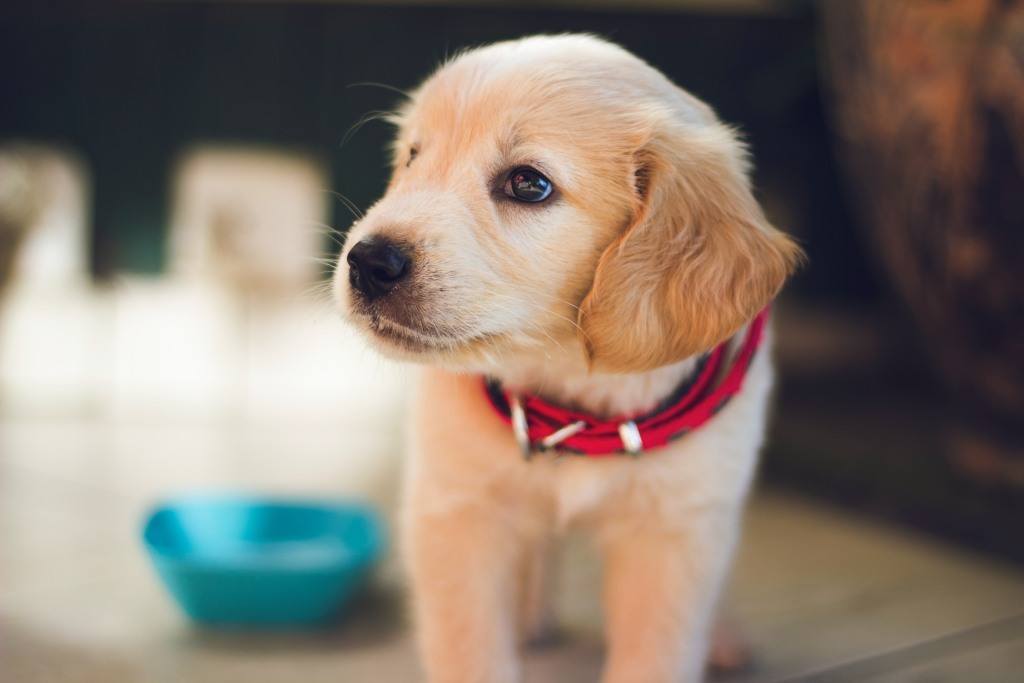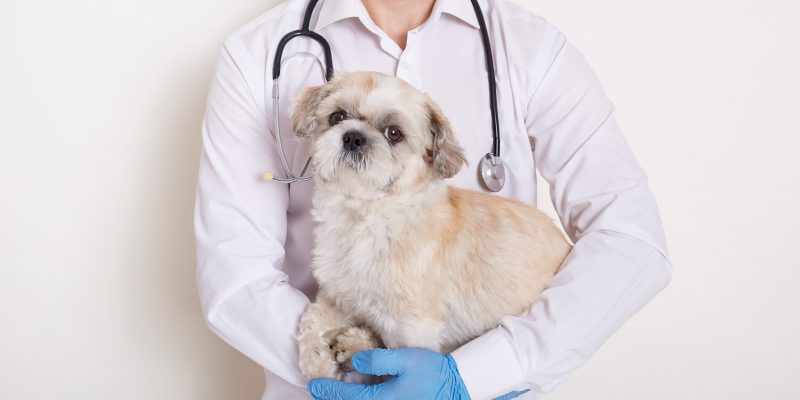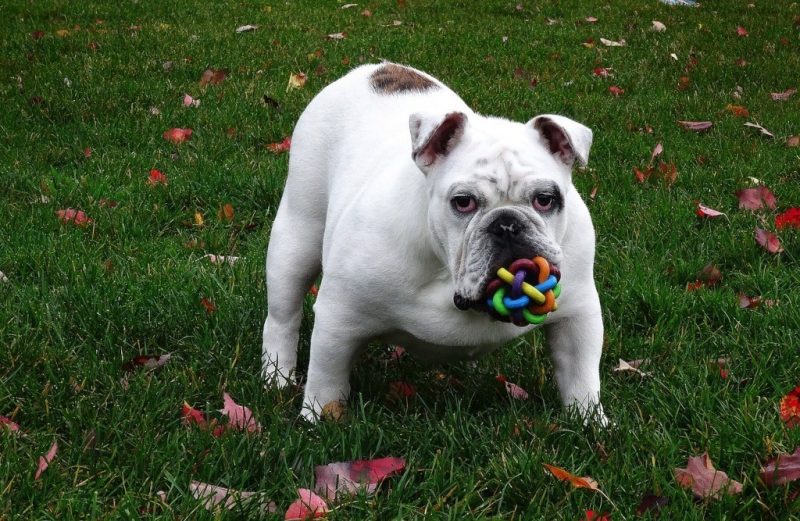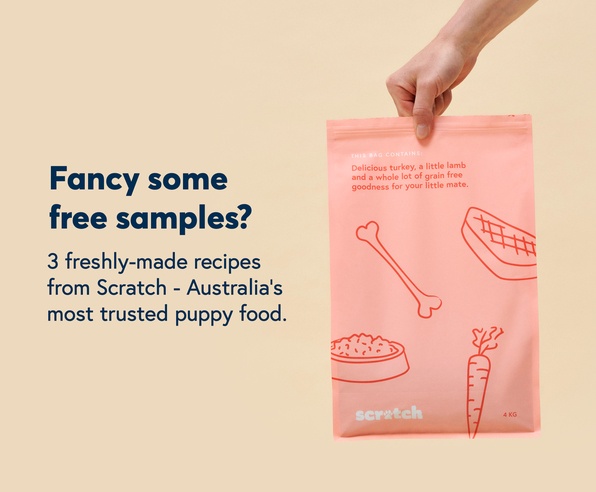We all want our pups to never grow up. But the reality is they grow incredibly fast. Which is why it’s so important to take puppy health seriously when they’re young to set them up for a healthy and happy life. So when you’re preparing to bring your dog home, spend a bit of time thinking about how you’re going to take care of their physical (as well as emotional) needs. To help you get fully puppy-ready, we’ve broken out the “need to know right now” puppy health information.
Puppy Food Vs Adult Food
Do puppies really need special food? Absolutely. Not only do growing dogs have more energy requirements compared to adult dogs of the same size, they also have higher needs for key nutritional building blocks. Puppy food should contain additional protein for healthy muscles and organs, fat for energy, and calcium and phosphorus for bones. As well as specific omega 3s (ALA, EPA, DHA) to help brain development. It takes lots of neurons to learn toilet training, tricks, and how to make you do exactly what they want!
Because of these complex requirements, if you decide to make your dog’s food rather than buying it from a trusted brand, you need to get advice from your vet or animal nutritionist.
Some high-quality foods are designed for both puppies and adults. The key is to look for claims like “nutritionally complete for all breeds and life stages”.
Large Breed Puppy Nutrition
Another claim you might spot is “nutritionally complete for all breed and life stages, except for large breed puppies”. Large breed puppies have more growing to do than smaller dogs–think of a great Dane compared to a chihuahua. They also take longer to get to their full size. This creates complications such as too much calcium putting them at risk of bones deformities. If you have a large breed pup always check to make sure their food is designed for them.
Feeding Time
Puppies need to eat more often than adults. A 10 week old pup needs four meals a day. After four to six months they can move to three meals a day. Once their growth starts to slow you can drop to twice a day.
Exercise
It will take a while until your puppy can double as a running buddy or yoga partner. They need time to grow into their body. Young puppies might be yogi flexible, but their joints, muscles, and tendons have to strengthen. Start with short walks and try not to encourage too much jumping or running until they’re a bit older. This is a good conversation to have with your vet and breeder as early exercise levels vary greatly between breeds.
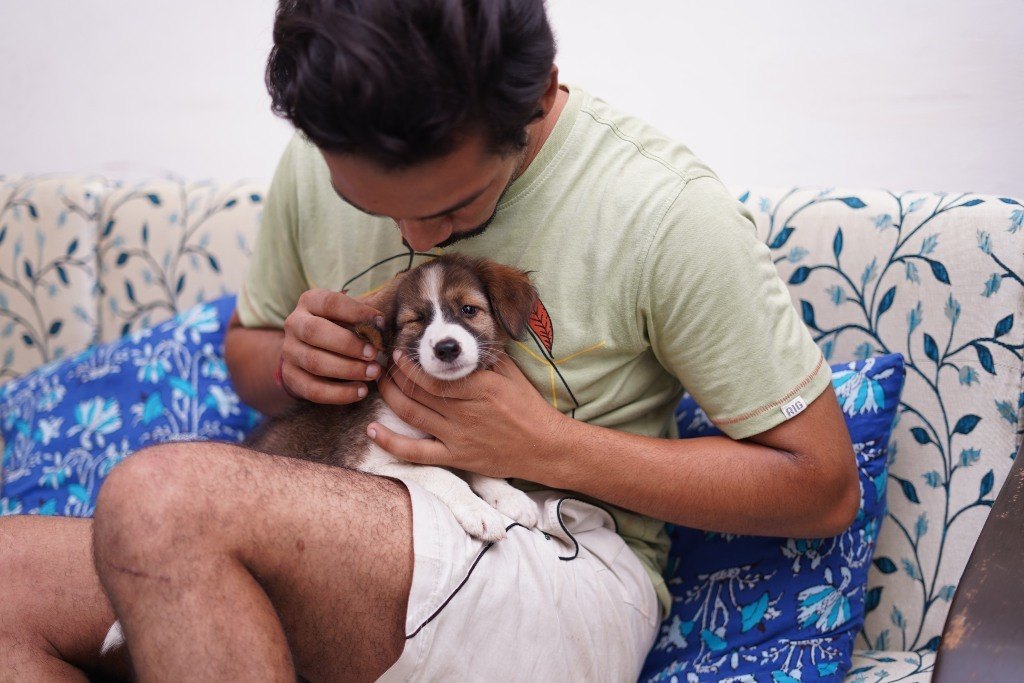
Teeth
Just like us, your puppy will start with baby teeth. Beware, they’re needle-sharp. You want them to learn quickly that you and your family are not on the menu. There are multiple training methods to do this, and you need to decide early what style works best for you and your pet.
While you can teach an old dog new tricks, puppyhood is the perfect time to normalise behaviours you want to encourage later in life. For example: if you regularly brush your dog’s teeth when they’re young, it’s more likely they’ll enjoy it when they’re older.
Also, don’t get too alarmed if you see some little teeth laying around. They start losing their baby teeth from around four months old.
Vets and Grooming
It’s also important to create positive associations between your puppy, the vet, and the groomer. Ideally they should be comfortable being handled by both of them, but that takes time (and lots of dog treats). Teaching them to open their mouth on command, be happy getting their claws clipped, and relax around electric clippers and scissors will make your life easier later on.
Sleep
Adult dogs tend to sleep between 12 to 15 hours per day. With young puppies that can be closer to 20 hours. They need time for their bodies and brains to grow and power their 200 percent energy levels. Crate training is a technique that will help your dog understand when it’s play time (AKA, not 4am) and when it’s sleep time.
You should aim to not have your dog waking you in the night to go to the toilet by the time they’re four months old. Remember, no one is a good dog parent if they don’t get their beauty sleep.
For more expert advice on everything (else) you need to know about preparing for a new pup, head over to Scratch’s New Dog Guide.
While you’re here, subscribe to our newsletter, check out our magazine, and follow us on Instagram, Facebook, and Twitter.

